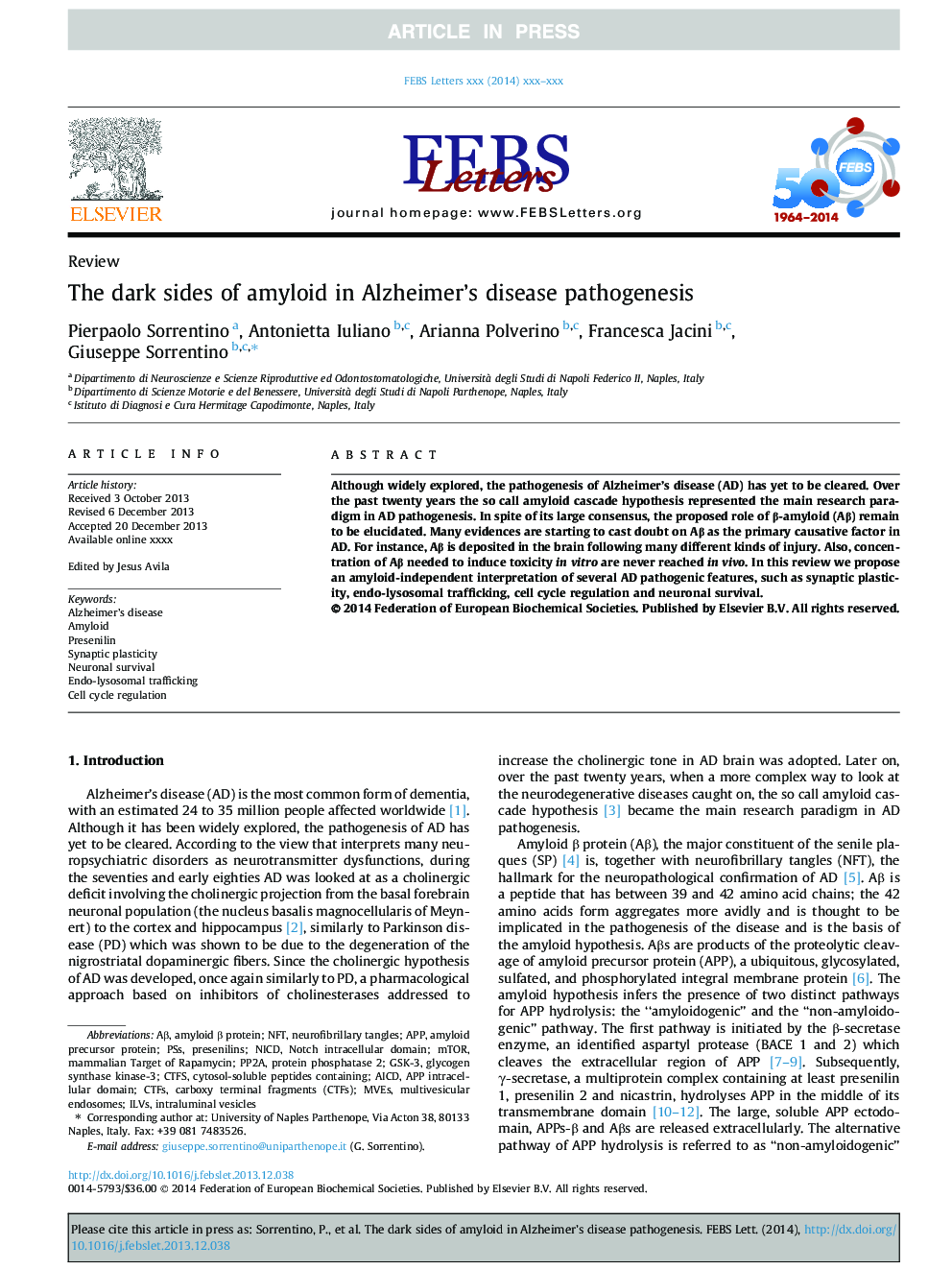| Article ID | Journal | Published Year | Pages | File Type |
|---|---|---|---|---|
| 10870542 | FEBS Letters | 2014 | 12 Pages |
Abstract
Although widely explored, the pathogenesis of Alzheimer's disease (AD) has yet to be cleared. Over the past twenty years the so call amyloid cascade hypothesis represented the main research paradigm in AD pathogenesis. In spite of its large consensus, the proposed role of β-amyloid (Aβ) remain to be elucidated. Many evidences are starting to cast doubt on Aβ as the primary causative factor in AD. For instance, Aβ is deposited in the brain following many different kinds of injury. Also, concentration of Aβ needed to induce toxicity in vitro are never reached in vivo. In this review we propose an amyloid-independent interpretation of several AD pathogenic features, such as synaptic plasticity, endo-lysosomal trafficking, cell cycle regulation and neuronal survival.
Keywords
NFTCTFSILVsNICDGSK-3AICDPSSPP2AAPPmTORAβintraluminal vesiclesAmyloidNeuronal survivalAlzheimer’s diseaseCell cycle regulationAPP intracellular domainNotch intracellular domainneurofibrillary tanglesmammalian target of rapamycinPresenilinPresenilinsamyloid β proteinprotein phosphatase 2amyloid precursor proteinSynaptic plasticityglycogen synthase kinase-3
Related Topics
Life Sciences
Agricultural and Biological Sciences
Plant Science
Authors
Pierpaolo Sorrentino, Antonietta Iuliano, Arianna Polverino, Francesca Jacini, Giuseppe Sorrentino,
